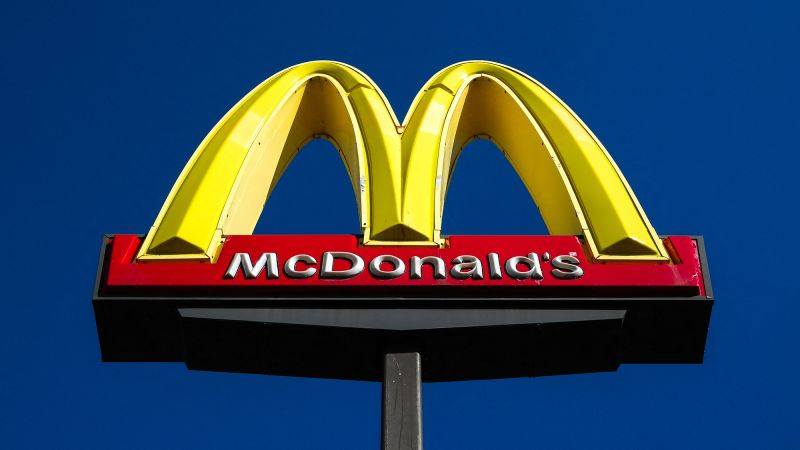McDonald’s is the latest target of a grassroots“economic blackout” campaign that has previously targeted other major companies with mixed success.
The People’s Union USA, led by John Schwarz, is now calling on people to boycott McDonald’s beginning Tuesday through next Monday, explaining in an Instagram post that he’s demanding “fair taxes, an end to price gouging, real equality, and corporate accountability.”
“This is a show of strength, solidarity and people powered change,” Schwarz wrote. “Let them feel it. Let them hear us.”
McDonald’s did not immediately respond to comment about the boycott.
Boycotts are notoriously difficult to organize, and it’s not clear that the effort will make a dent in McDonald’s bottom line. Nevertheless, the spotlight is shining on McDonald’s at a less-than-ideal time for the company, which recently reported itssecond consecutive quarter of sales declines. Customers, especially in low and middle income brackets, have pulled back their spending amid economic uncertainty.
McDonald’s has faced backlash from some customers about its prices. The value perception of the chain has dimmed among its cash-conscious customers: The average price of items has soaredabout 40%since 2019. The company says this is in line with its rising costs.
Schwarz didn’t immediately respond for comment. His websitecallsthe group “a grassroots movement dedicated to economic resistance, government accountability, and corporate reform,” adding that the “goal is to unite Americans against the corruption and greed that has kept us struggling for decades.”
Schwarz garnered national attention earlier this year when his group called for an “economic boycott” on Walmart, Target and Amazon forvarious reasons, including the roll-back of diversity, equality and inclusion (DEI) programs.
In January,McDonald’s endedsome of its its specific diversity goals, including requiring its suppliers to commit to certain DEI targets.
The chain also stopped participating in external surveys that measure corporate diversity, as well as changed the name of its diversity team to the Global Inclusion Team — acommon practicefor many other companies that have rolled back diversity pledges.
Companies have changed their views on DEI following the re-election of President Donald Trump, who opposes the efforts, and aSupreme Court ruling against affirmative action.Online pressure, legal threats and customer opposition have led many companies, includingWalmart, Ford, Harley-Davidson,John Deereand others to make changes to their DEI initiatives.
Still, Schwartz’s bark might be louder than his bite. A March boycott against Amazon had negligible affect to its bottom line with the company posting better-than-expected earnings results during that quarter.
The “economic blackout” effort is relatively uncoordinated and nebulous.Experts on consumer boycottsand corporate strategy are dubious that it will make a dent in the bottom lines of the massive companies that it targets, let alone the vast US economy.
However, a 40-day boycott against Target led by megachurch pastor Rev. Jamal Bryant, has been more fruitful. Sales fell last quarter, driven in part by customer backlash to Target’sreversal on its DEI programs, the company admitted.
